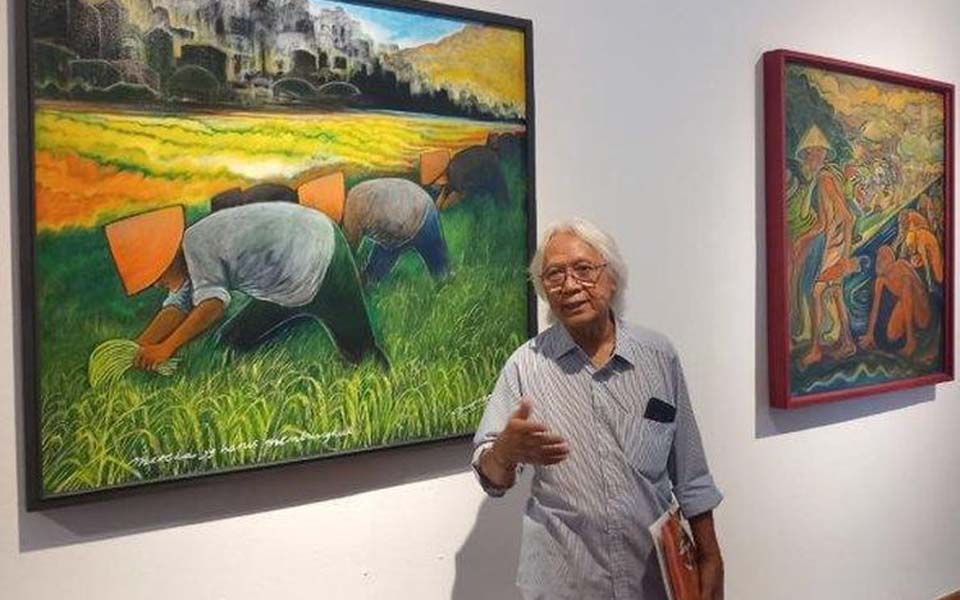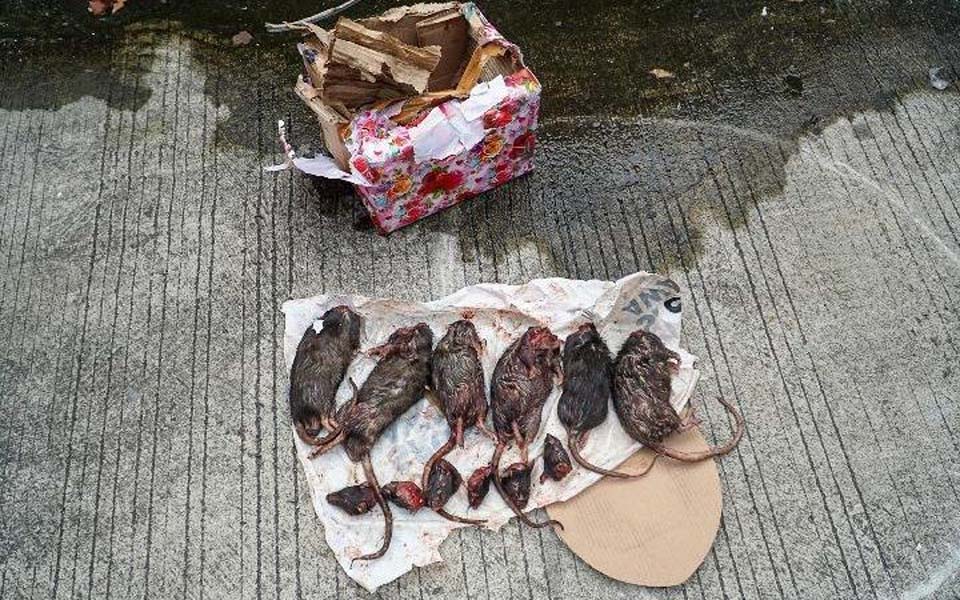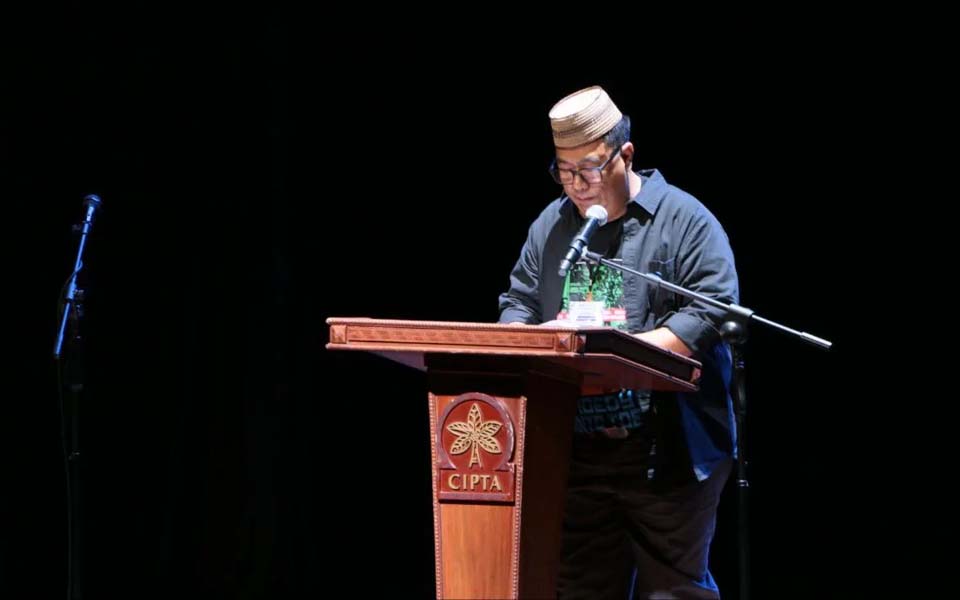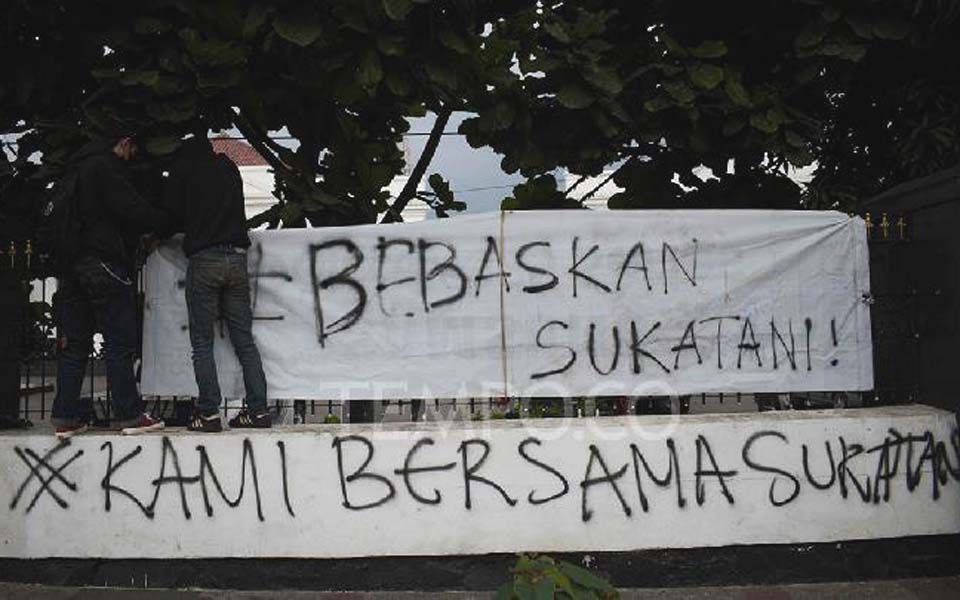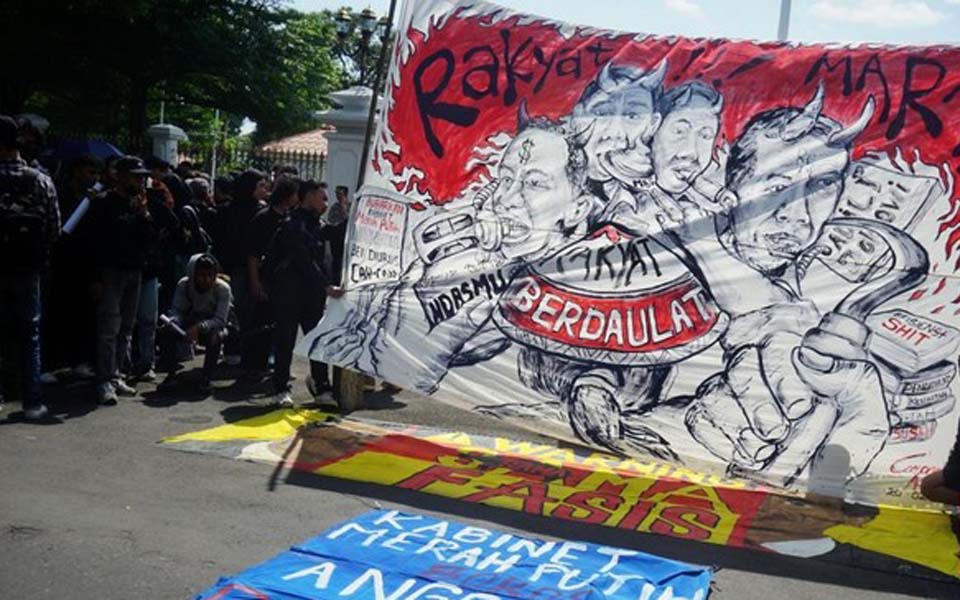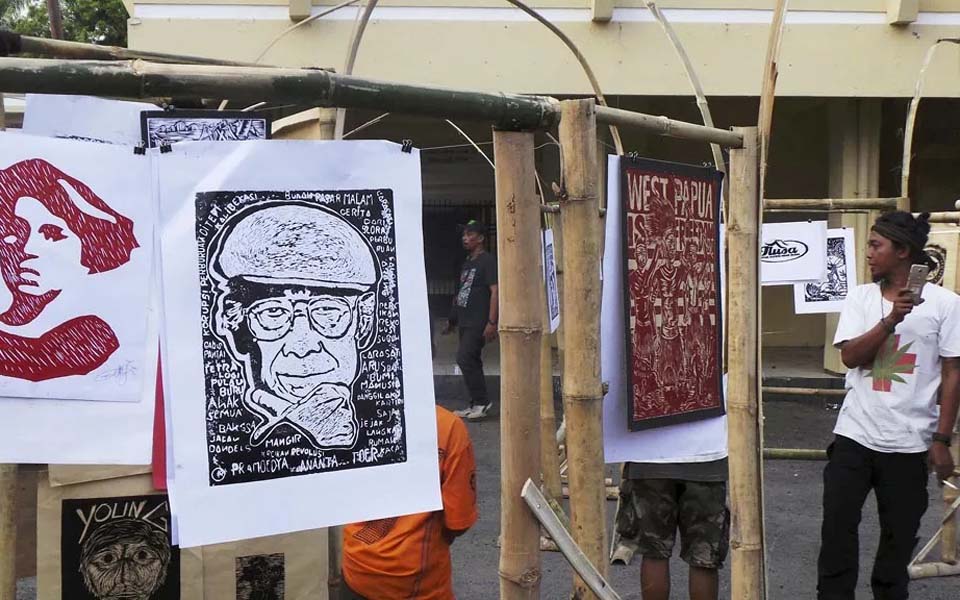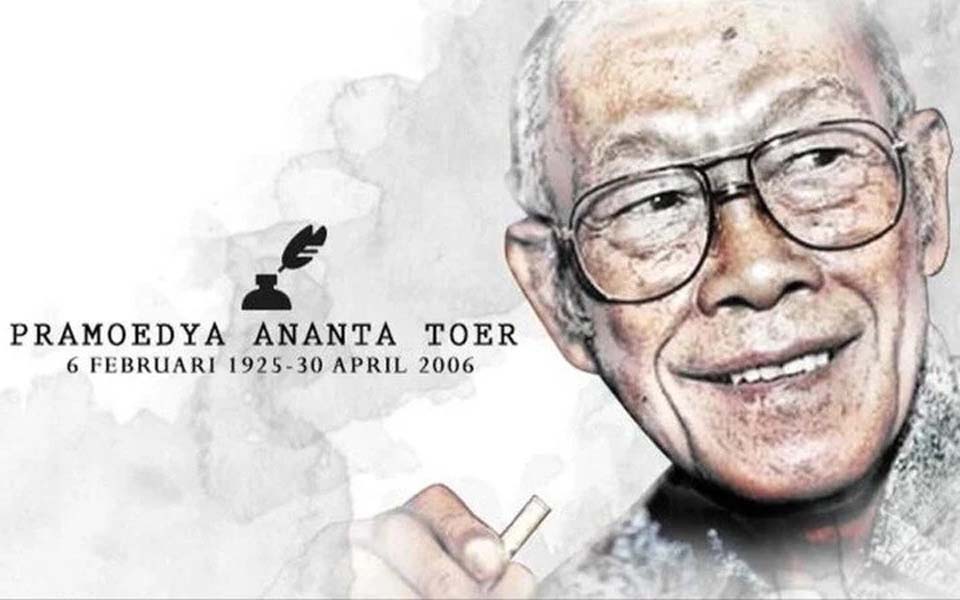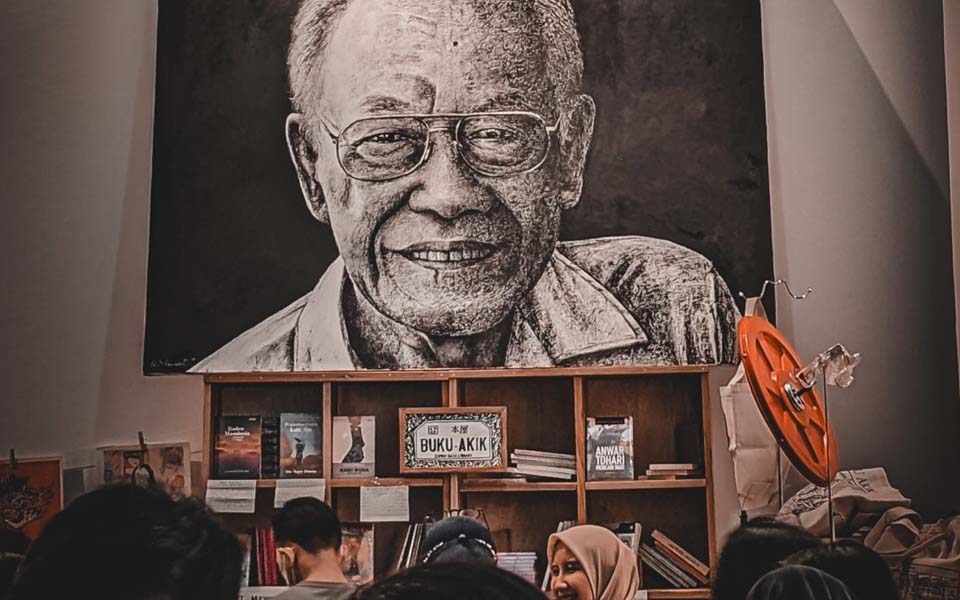Haryanti Puspa Sari, Icha Rastika, Jakarta – Amnesty International Indonesia Executive Director Usman Hamid regrets the postponement of Yos Suprapto's painting exhibition at the National Gallery of Indonesia.
Moreover, he said, the postponement of the exhibition was due to five paintings by Suprapto which were considered sensitive, namely those resembling the 7th president of the Republic of Indonesia, President Joko "Jokowi" Widodo.
"I personally regret this censorship, because the country has ratified the international covenant on civil and political rights. The provisions of Article 19 of the international covenant on civil and political rights guarantee freedom of expression for everyone, including artists", said Hamid in a discussion entitled Art as a Medium for Criticising Power in Cikini, Jakarta, on Sunday December 22.
Hamid said that the medium of art represents intellectual and artistic freedom. He added that the banning of art exhibitions usually only occurs in authoritarian countries.
"Now, usually censorship and the banning of works of art only occurs in authoritarian countries, on the grounds that it disrupts political stability, religious norms, and socio-economic norms", he said.
Hamid also stated that democracy in Indonesia at the moment cannot be categorised as good. This, he said, can be seen from the narrowing public space to convey criticism and protest, the decline in the freedom of political parties to be in opposition and the questionable integrity of elections.
"Now, because of that, this incident must not be an act that further worsens the state of democracy in Indonesia such that it becomes an authoritarian state", he said.
Based on this, Hamid hopes that the National Gallery and the Ministry of Culture will correct their policies so that the five banned paintings can still be displayed as part of Suprapto's exhibition.
"So, I really hope that the National Gallery and the Ministry of Culture will adjust and correct their policies, by allowing the five banned paintings to be displayed again, and the exhibition allowed to be accessed by the public until the scheduled end, which is on January 19, 2025", he said.
Suprapto's solo exhibition titled Revival: Land for Food Sovereignty was scheduled to run for one month from December 19 to January 19, 2025. The National Gallery however announced that the exhibition had been postponed due to curation issues.
The Minister of Culture Fadli Zon from President Prabowo Subianto's Greater Indonesia Movement Party (Gerindra) has denied that the exhibition was forcibly closed down.
"There was no censorship, no banning. We support freedom of expression", said Zon at the opening of an exhibition titled 130 Years of Pithecanthropus Erectus at the National Museum in Central Jakarta on Friday evening, December 20.
According to Zon, the postponement of the exhibition was due to the inappropriateness of the theme with the paintings exhibited. Suprapto is said to have installed paintings that were not approved by the curator.
"There were themes that may be politically motivated, maybe even insulting someone. Then, there were also figures who were naked, that's inappropriate. Naked while wearing a hat that has a certain cultural identity", said Zon.
He added that depictions of objects wearing the hats of Javanese kings or the king of Mataram could trigger offense and fall into the category of SARA – inciting ethnic, religious, racial and inter-group conflicts.
"In an exhibition, the one who has the authority is actually the curator. Well, the curator worked together with the artist to choose the theme of food sovereignty", added Zon.
[Translated by James Balowski. The original title of the article was "Amnesty: Sensor Karya Seni Biasanya Terjadi di Negara Otoriter".]





